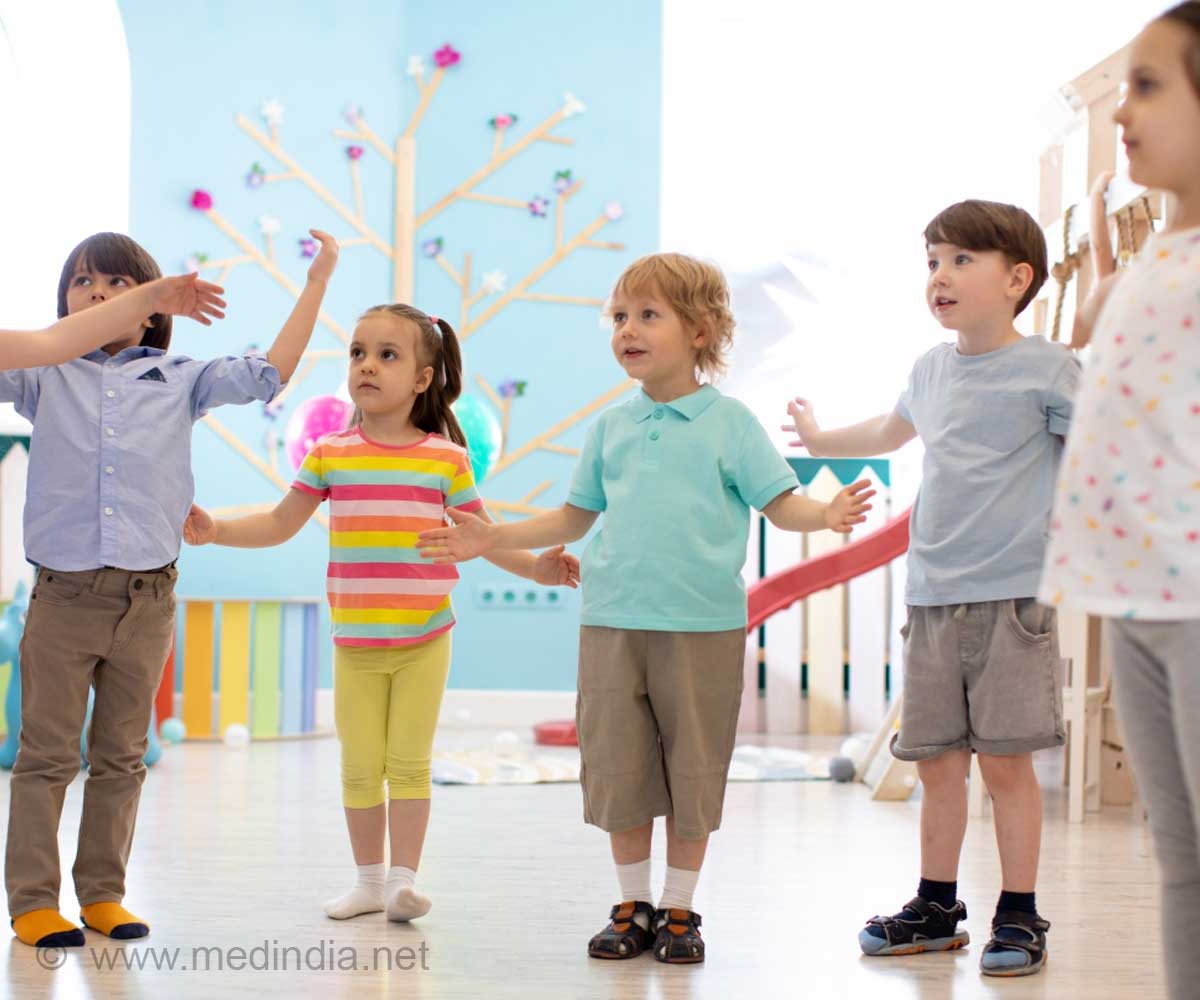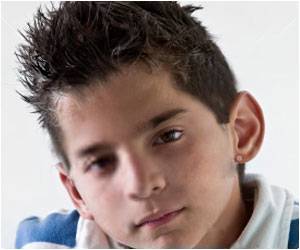Indiana University cognitive scientists Catarina Vales and Linda Smith demonstrate that children spot objects more quickly when prompted by words than if they are only prompted by images.

In the experiment, children played a series of "I spy" games, widely used to study attention and memory in adults. Asked to look for one image in a crowded scene on a computer screen, the children were shown a picture of the object they needed to find -- a bed, for example, hidden in a group of couches.
"If the name of the target object was also said, the children were much faster at finding it and less distracted by the other objects in the scene," said Vales, a graduate student in the Department of Psychological and Brain Sciences.
"What we've shown is that in 3-year-old children, words activate memories that then rapidly deploy attention and lead children to find the relevant object in a cluttered array," said Smith, Chancellor's Professor in the Department of Psychological and Brain Sciences. "Words call up an idea that is more robust than an image and to which we more rapidly respond. Words have a way of calling up what you know that filters the environment for you."
The study, she said , "is the first clear demonstration of the impact of words on the way children navigate the visual world and is a first step toward understanding the way language influences visual attention, raising new testable hypotheses about the process."
Vales said the use of language can change how people inspect the world around them.
Advertisement
Vales said their research results "begin to tell us precisely how words help, the kinds of cognitive processes words tap into to change how children behave. For instance, the difference between search times, with and without naming the target object, indicate a key role for a kind of brief visual memory known as working memory, that helps us remember what we just saw as we look to something new. Words put ideas in working memory faster than images."
Advertisement
"Limitations in working memory have been implicated in almost every developmental disability, especially those concerned with language, reading and negative outcomes in school," Smith said. "These results also suggest the culprit for these difficulties may be language in addition to working memory.
"This study changes the causal arrow a little bit. People have thought that children have difficulty with language because they don't have enough working memory to learn language. This turns it around because it suggests that language may also make working memory more effective."
How does this matter to child development?
"Children learn in the real world, and the real world is a cluttered place," Smith said. "If you don't know where to look, chances are you don't learn anything. The words you know are a driving force behind attention. People have not thought about it as important or pervasive, but once children acquire language, it changes everything about their cognitive system."
"Our results suggest that language has huge effects, not just on talking, but on attention -- which can determine how children learn, how much they learn and how well they learn," Vales said.
Source-Eurekalert










